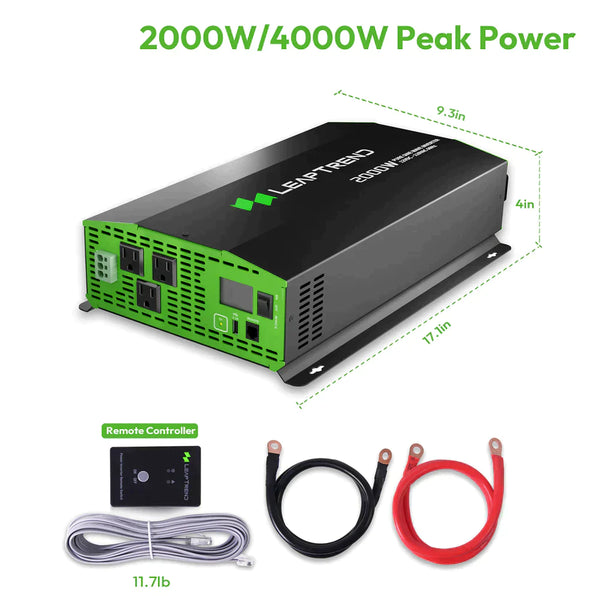How Much Power Does a 2000 Watt Inverter Use?
In the modern age of technology, inverters have become an essential piece of equipment for those seeking a reliable source of alternating current (AC) power in locations where only direct current (DC) is available. A 2000-watt inverter is a popular choice for its versatility and capacity to handle a wide range of electrical devices. But, how much power does a 2000W inverter actually use?
To understand the power consumption of a 2000-watt power inverter, it's crucial to first grasp the fundamental concept of wattage. Watts represent the rate at which energy is transferred or consumed. In the context of inverters, the watt rating specifies the maximum power output the device can provide. However, the power used by the inverter itself depends on the load it's carrying.
How much electricity does a 2000W inverter consume?
A 2000 watt inverter is capable of delivering up to 2000 watts of power to an appliance or multiple appliances combined. But, if the connected devices require less than 2000 watts, the inverter will consume less power. For instance, if you're only running a 500-watt device, the inverter will only draw the necessary power to support that load.
It's important to note that inverters are not 100% efficient. There is always some energy loss in the conversion process from DC to AC. The efficiency of an inverter can vary depending on its design and quality. A higher-efficiency inverter will convert more of the input power into useful output power, resulting in less wasted energy.
When considering the power usage of a 2000 watt inverter pure sine wave, you should also take into account the power draw of the source providing the DC input. This could be a battery, solar panel, or another DC power source. The power consumed by the inverter will be drawn from this source, so it's crucial to ensure that the source can handle the load.

To summarize, the power used by a 2000 watt inverter pure sine wave depends on the load it's carrying. If the connected devices require less power, the inverter will consume less. Efficiency also plays a role, as a more efficient inverter will waste less energy. It's essential to match the inverter's capacity with the power requirements of your devices and ensure that the DC power source can provide sufficient energy to meet the inverter's needs.
Remember, proper usage and maintenance of your inverter can help maximize its efficiency and extend its lifespan. Always follow the manufacturer's guidelines and avoid overloading the inverter to ensure optimal performance.
























